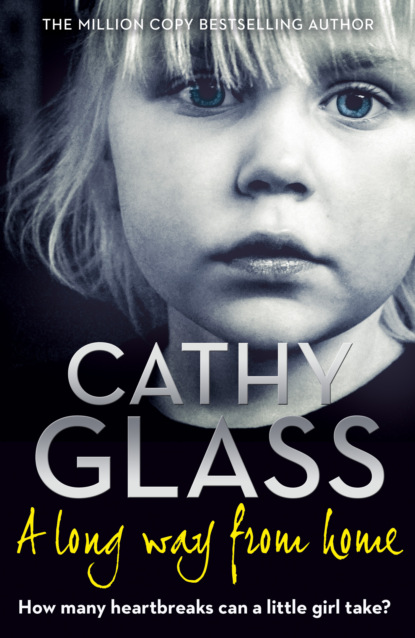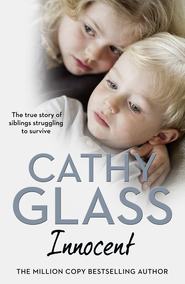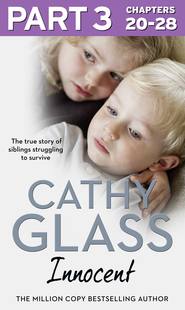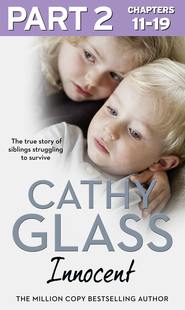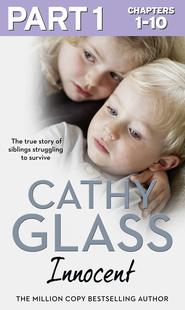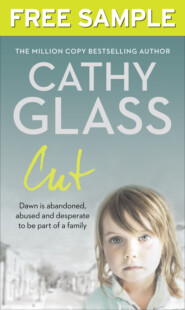По всем вопросам обращайтесь на: info@litportal.ru
(©) 2003-2024.
✖
A Long Way from Home
Настройки чтения
Размер шрифта
Высота строк
Поля
Dr Ciobanu made a move to go. ‘So you come back tomorrow,’ he said.
‘Yes, of course. What time?’ Ian asked.
‘I’ll phone you in the morning in your hotel room to let you know.’ He then called down the corridor for a care worker. ‘Anastasia can stay out of her cot for now,’ he said to them. ‘She can help. She likes to help.’
A different care worker appeared, but seemed no less harsh and abrasive in her manner than the other one. Dr Ciobanu said something to her in their own language and then called Anastasia, presumably to go with the care worker. Anastasia pretended not to hear and stayed by the cot. ‘Now, please,’ the doctor said firmly, then repeated it in her own language. Anastasia dutifully turned and went over to the care worker. Elaine’s heart clenched.
‘Goodbye, love,’ she called after her. ‘See you tomorrow.’ But Anastasia didn’t reply, because of course she hadn’t understood.
‘You can teach her English when you visit,’ Dr Ciobanu said, beginning towards the door. ‘She will learn quickly. She is bright.’
‘Yes,’ Ian agreed, much happier now.
Anastasia and the care worker were already out of sight as the doctor led the way to the main door. ‘Do you want our paperwork now?’ Ian asked, having brought it with them in his briefcase.
‘Tomorrow will do. We have plenty of time.’
‘But not too long, I hope,’ Ian said.
The doctor smiled. ‘Don’t worry. You enjoy your stay here, see some of our beautiful country and let me take care of the rest.’ He unlocked the door and they followed him down the path, where he let them out of the main gate, saying hello to their cab driver.
‘So you’ll phone us tomorrow morning to let us know what time we have to come?’ Ian confirmed. He would have liked a firm time but had to accept that things ran differently in this country.
‘Of course.’ Dr Ciobanu shook their hands and then returned inside as Elaine and Ian climbed into the back of the cab.
‘You look happier,’ the driver said.
‘We are,’ Ian replied, taking Elaine’s hand.
‘You met your daughter?’ the driver asked, starting the engine.
‘We did,’ they chimed. For although they hadn’t actually had that conversation, they both instinctively knew that to adopt Anastasia was the right decision. They were beside themselves with joy.
The driver dropped them off at their hotel and they went briefly to their room to freshen up, then had a light lunch in the hotel, including a glass of wine to celebrate. While they ate, Ian messaged those who knew they were there and were waiting for news, telling them only that they had met their daughter and everything was fine. They would fill in the details about Lana’s passing and Anastasia when they returned home. For now, this was the update their friends were waiting for, and his and Elaine’s phones buzzed with messages of congratulations and good luck.
They spent the afternoon walking around the local area, gazing into shop windows and down side alleys, and visiting the street market. They took lots of photographs. Although it was their first visit to the country, they’d read up about it and researched online and wanted pictures of the area to show Anastasia when she was older. The social worker who’d assessed them for their suitability to adopt and compiled their Home Study report had emphasized how important it was for adopted children to know their roots. She said they had to be completely honest with the child from the start and recommended they compile a Life Story Book and Memory Box, which they’d already begun, having taken photographs of the departure board at the airport and saved their boarding cards. They’d take photographs of Anastasia tomorrow and, if they were allowed, of the orphanage too. They’d keep the clothes she wore here and anything else significant or of sentimental value that would help give her a better understanding of her past. Elaine had also begun a diary of their journey through the adoption process, confiding their hopes and feelings from when they’d made that first phone call enquiring about adoption. Anastasia would know as much about her past as possible, just like the social worker had said, although possibly not about Lana. She must never feel second best.
That evening, after dinner, they sat in their hotel room with a phrase book and tried to learn some of the language, but it was a very difficult language to learn and they laughed at their feeble attempts to pronounce the words. Thankfully Dr Ciobanu spoke very good English, and it was important that Anastasia learned English as soon as possible, so learning the local language for them was fun rather than necessary.
They were in bed early and slept well. Nevertheless, they were downstairs at 7 a.m. having breakfast, excited at the prospect of spending time with Anastasia, and not wanting to miss Dr Ciobanu’s phone call. As soon as they’d finished eating they returned to their room. Although Dr Ciobanu had both their mobile numbers, the network service in this country was notoriously haphazard and expensive, and they knew that most professions preferred to use landlines where possible.
The morning slowly ticked by. The maid knocked on their door to make up their room but they thanked her and told her not to bother today. The phone stayed perversely silent and by noon, when Dr Ciobanu still hadn’t called, doubt and anxiety set in.
‘He definitely said he’d phone in the morning,’ Elaine said, ‘and the morning has gone now.’
‘Perhaps he got held up or called away,’ Ian offered.
‘Or perhaps Anastasia’s mother has refused to give consent and is taking Anastasia with her,’ Elaine said, voicing her worst fears. ‘If so, I can’t go through this again, Ian. I can’t. We forget about it and go home.’
‘We don’t know that,’ Ian said, trying to be rational. ‘Let’s assume for now that no news is good news.’
Elaine wasn’t reassured. ‘Dr Ciobanu said we could visit this afternoon but before long it’s going to be too late. We can’t just sit here waiting indefinitely.’
‘But we know from other couples that there is a lot of waiting and hanging around,’ Ian reminded her.
‘But that was waiting for the court date,’ she said, irritable from worry.
‘All right, calm down. We’ll give him another hour and then I’ll phone at one o’clock.’
The hour passed, the phone didn’t ring and their unease increased.
‘Shall I phone or will you?’ Elaine snapped at 1.05.
‘I will,’ Ian said, but went to use the bathroom first.
Elaine would have liked to give Dr Ciobanu a piece of her mind for causing them all this extra stress. International adoption was emotional and fraught even when it ran smoothly. But neither she nor Ian would criticize the doctor to his face, as they were relying on him to give them what they wanted more than anything in the world – a child of their own. He could keep them waiting for as long as he wanted and they had to put up with it.
Returning from the bathroom, Ian sat beside Elaine on the edge of the bed and pressed the speaker button on the phone so they could both hear the conversation. He keyed in the number to the orphanage and to their surprise it was answered straight away by Dr Ciobanu.
‘It’s Ian Hudson,’ he said, a slight tremor in his voice.
‘Hello. How are you?’ the doctor asked jovially, apparently oblivious to the worry he’d caused them. Elaine wrung her hands in her lap.
‘We’re OK,’ Ian said. ‘But we were expecting you to phone this morning about our visit this afternoon.’
‘Yes, come here tomorrow with your paperwork.’
‘Not today?’ Ian asked.
‘No. I have a visitor from the government coming this afternoon. Tomorrow is good.’ Which again they had to accept.
‘All right. So everything went well with the mother?’
‘Yes.’
‘She has consented to the adoption?’
‘Yes, of course. You and your wife will have to learn to trust me. I know what I am doing.’
‘Yes, I’m sure you do. I’m sorry,’ Ian said quickly. ‘We’re just very anxious, having lost Lana. We couldn’t bear another loss.’
‘And you won’t have to. Come here tomorrow at two and you can spend time with your daughter.’
‘Thank you so much.’
‘You’re welcome.’
Chapter Four
Другие электронные книги автора Cathy Glass
Innocent




 0
0





